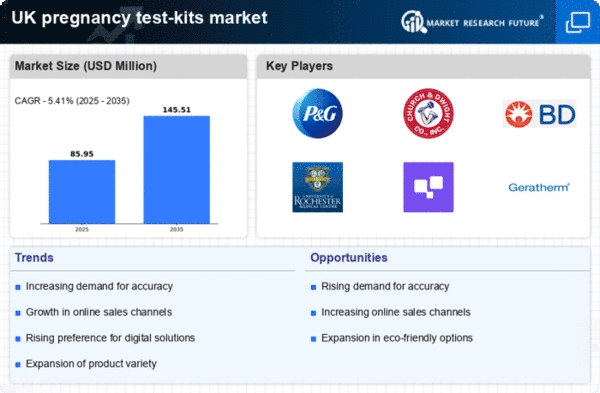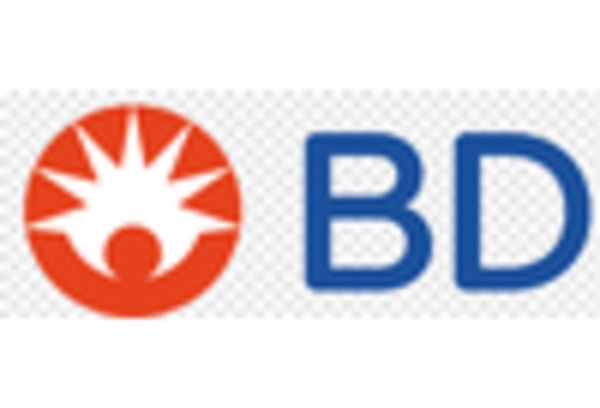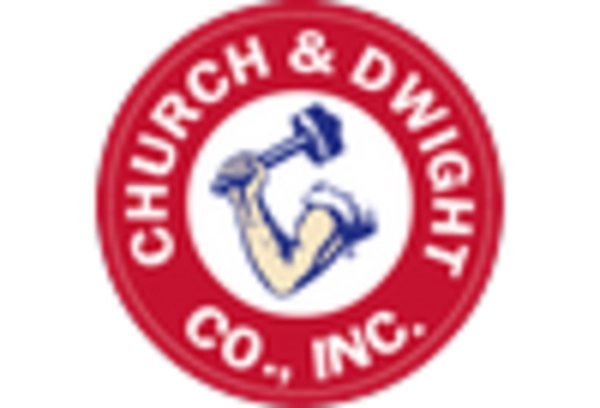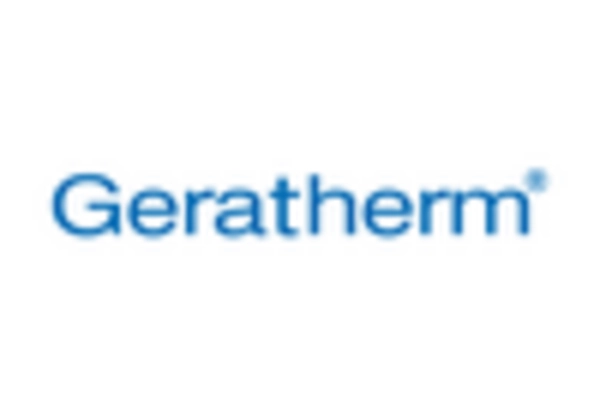Rising Birth Rates
The pregnancy test-kits market experiences a notable boost due to the increasing birth rates in the UK. Recent data indicates that the birth rate has shown a slight uptick, which correlates with a heightened demand for pregnancy test kits. As more individuals and couples plan for families, the need for reliable and accessible testing options becomes paramount. This trend is further supported by the growing number of women in their reproductive years, which is projected to sustain the market's growth. The pregnancy test-kits market is thus positioned to benefit from this demographic shift, as more consumers seek to confirm pregnancies early and accurately.
Changing Social Norms
Changing social norms regarding family planning and pregnancy contribute to the evolving landscape of the pregnancy test-kits market. As societal attitudes shift towards more open discussions about reproductive health, individuals are increasingly proactive in seeking pregnancy tests. This cultural change is reflected in the growing acceptance of home testing as a reliable method for confirming pregnancy. Additionally, the rise of single-parent households and diverse family structures influences consumer behavior, leading to a broader market base. The pregnancy test-kits market is likely to thrive as these social dynamics continue to evolve, encouraging more individuals to engage with pregnancy testing.
Health Education Initiatives
Health education initiatives significantly impact the pregnancy test-kits market by raising awareness about reproductive health. Various organizations and government bodies are actively promoting education on family planning and pregnancy detection. These initiatives often include workshops, informational campaigns, and distribution of free or subsidized test kits. As awareness increases, more individuals are likely to utilize pregnancy test kits for early detection, thereby driving market growth. The pregnancy test-kits market stands to benefit from these educational efforts, as they empower consumers to make informed decisions regarding their reproductive health.
Increased Retail Availability
The expansion of retail channels plays a crucial role in the growth of the pregnancy test-kits market. With the rise of e-commerce and the increasing presence of health and wellness products in supermarkets and pharmacies, consumers have greater access to pregnancy test kits. This increased availability is particularly beneficial in rural areas where access to healthcare services may be limited. Furthermore, promotional strategies and competitive pricing are making these products more affordable. As a result, the pregnancy test-kits market is poised for growth, as consumers are more likely to purchase these products when they are readily accessible.
Innovations in Product Design
Innovative advancements in product design significantly influence the pregnancy test-kits market. Manufacturers are increasingly focusing on user-friendly designs that enhance the testing experience. For instance, the introduction of digital displays and smartphone connectivity has made testing more intuitive. Additionally, the development of ultra-sensitive tests that can detect lower levels of hCG hormone is gaining traction. These innovations not only improve accuracy but also cater to the preferences of tech-savvy consumers. The pregnancy test-kits market is likely to see a surge in demand as these cutting-edge products become more widely available, appealing to a broader audience.
















